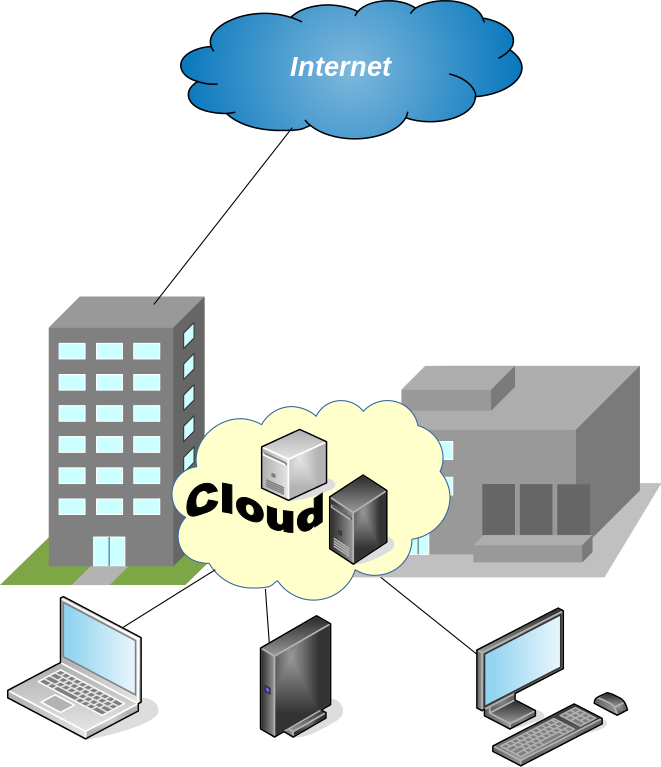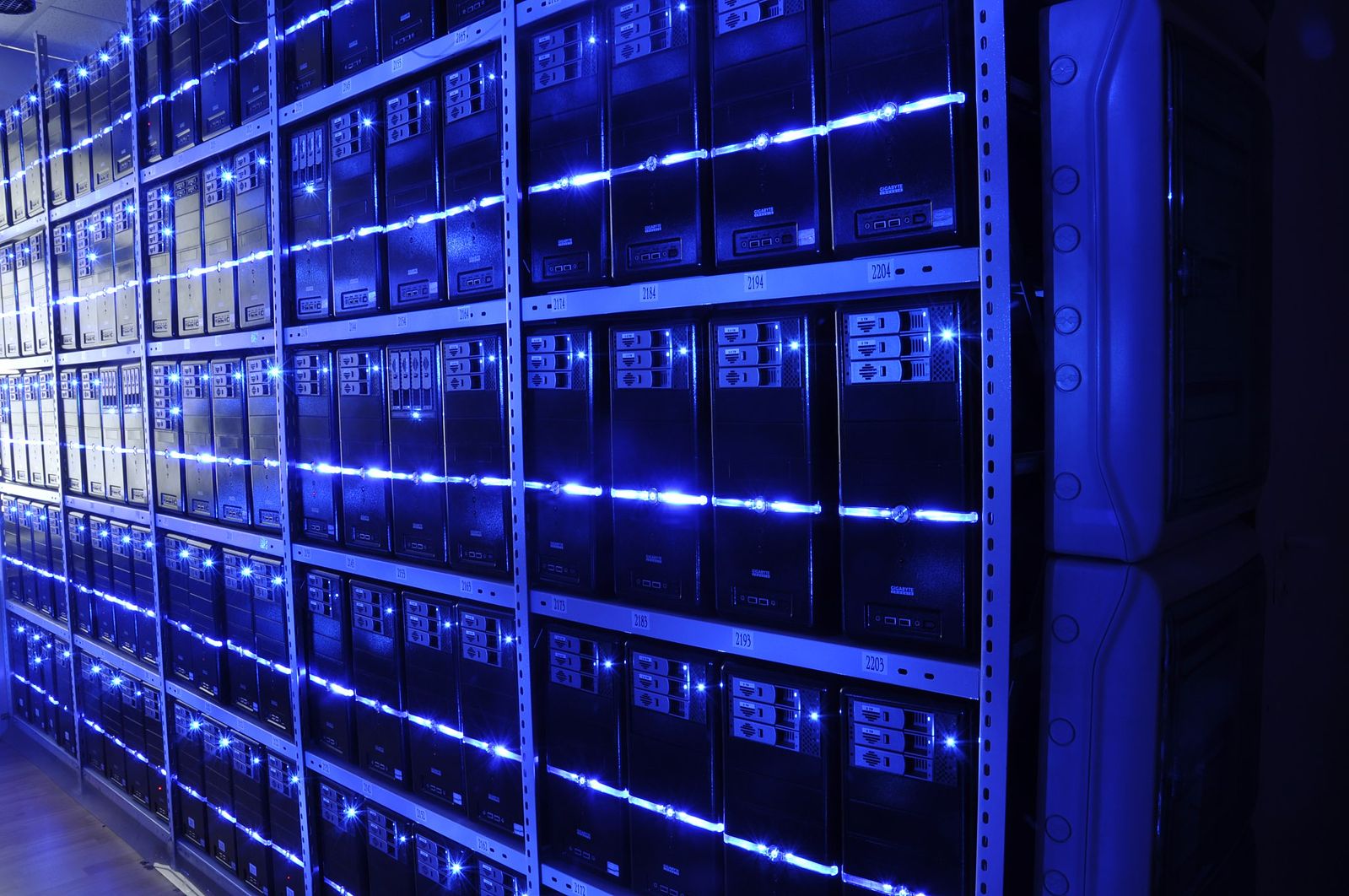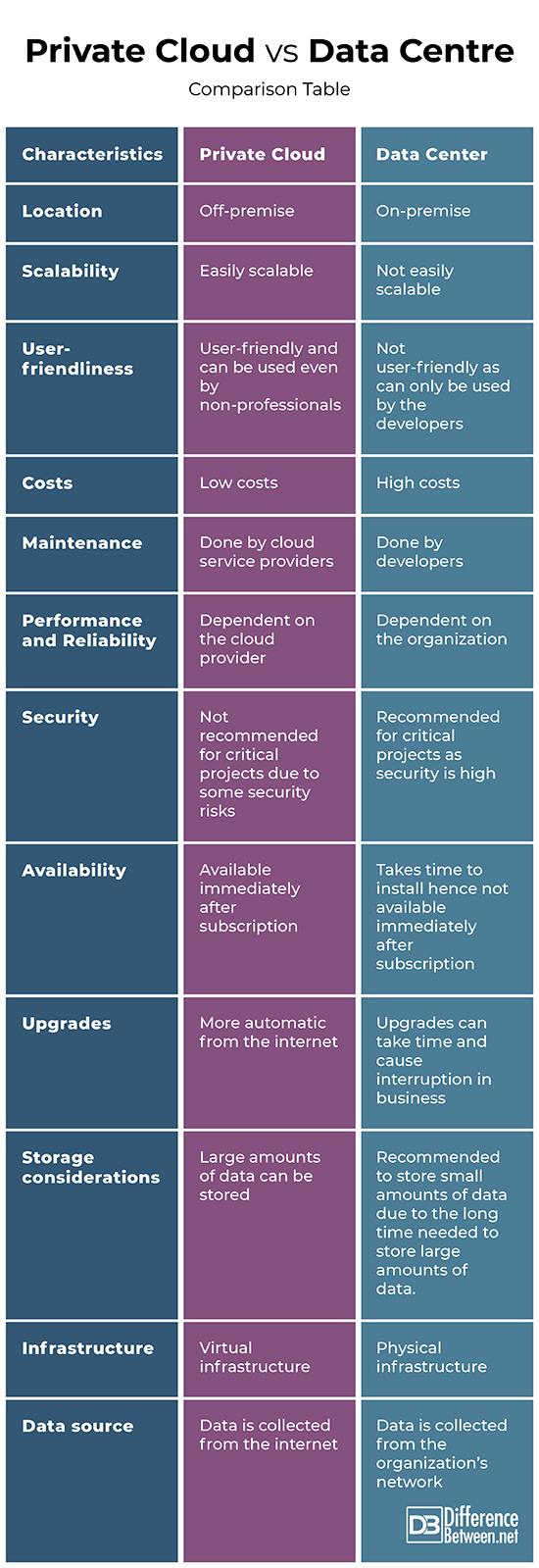Difference Between Private Cloud and Data Center
Advances in technology and its use in furthering business have left business owners with no option but to look for platforms to meet their business goals. This has brought platforms such as private cloud and data center into the limelight with the business owners left to decide which one works best for them. But what exactly is private cloud and data center? Let us look at their differences and applicability below.

What is Private Cloud?
A private cloud refers to computing services offered over the internet but only for a single customer instead of the general public. It is also referred to as a corporate or internal cloud. Data privacy is provided through firewalls and internal hosting. Third-party providers are denied access to operational and sensitive data.
Features of a Private Cloud
- It is a component of IT development known as cloud computing.
Cloud computing refers to the availability of computer systems and resources on the internet instead of locally on your computer such as storage.
- Businesses benefit from cloud computing in terms of its scalability, availability, instant provisioning, virtualized resources, and storage.
- Cloud computing is divided into three: private, hybrid, and public cloud computing. Hybrid cloud refers to as mixed computing, storage, and services environment. It combines both private and public cloud computing. Public cloud computing refers to computing services offered by a third-party provider and shared with multiple organizations using the public internet. These offer different kinds of software and their security is different.
- Private cloud, as for all cloud computing, is off-premise meaning data is stored online on the internet so that a user can access it whenever necessary.
- Private cloud allows restricted use to a single customer meaning other people cannot access the data, unlike public cloud where anyone can access the data.
- Private cloud offers certain security advantages over the other two types of cloud computing, though it still poses some security risks such as outdated VM images, rogue admins/ service providers, and data loss.
- Data maintenance is done by service providers in the private cloud.

What is Data center?
A data center refers to a large group of networked servers usually in a building or a space between buildings that organizations use for storage and distribution of data and applications. Its components include switches, servers, routers, storage systems, firewalls, and application delivery controllers.
Features of a Data Center
- A data center is on-premise computing meaning software and applications are stored locally in the organization’s database and are present near the organization.
- Only the organization can access the data meaning the data is more secure in a data center compared to the cloud.
- Data maintenance is done by developers within an organization who are trained on how to maintain the organization’s database. These developers are often updated on new development to cope with any technological changes that may suffice over time.
- The servers in data centers are expensive to install, unlike cloud computing which is available on the internet.
Similarities of a Private Cloud and a Data Center
- They are both avenues through which data is stored and made available to users.
- Both platforms are maintained by trained IT experts; private cloud by service providers, data center by developers.
- Both the private cloud and data center offer services to one user, Private cloud for a single customer and data center for one particular organization.
- They are both advances in technology and can be used to benefit businesses.
Differences between private cloud and data center
Location
A private cloud is off-premise while a data center is on-premise. A private cloud is off-premise because it’s accessed from the internet. A data center is on-premise as the applications are located near the organization.
Scalability
A private cloud is easily scalable requiring only a small amount of investment while a data center is not easily scalable and needs a huge investment of servers.
User-friendliness
A private cloud environment is simple and easily understandable even for non-professionals while data center architectural design is not easy and is only understood by developers.
Costs
Private cloud has low costs as there’s no need for physical servers while data center incurs high costs of the server installation.
Maintenance
In a private cloud, maintenance is done by service providers while in a data center maintenance is done by developers who manage the organization’s database.
Performance and reliability
Performance and reliability in a private cloud are dependent on the cloud provider while in a data center performance is dependent on the organization.
Security
Though a private cloud is said to be fairly secure, there are still some possible security risks with its use. It is therefore not recommended for critical projects. A data center, on the other hand, is more secure. Hence, it’s recommended for critical projects.
Availability
Private cloud services are available immediately after subscription while the data center takes time to install. It is therefore not easily available after the subscription.
Upgrades
For the Private cloud, upgrades are more automatic from the internet while in the data center upgrades can take time and cause an interruption in business.
Storage considerations
Large amounts of data can be stored in a private cloud. It’s recommended to store small amounts of data in a data center as it takes more time to store large amounts of data.
Infrastructure
A private cloud is a virtual infrastructure while a data center is physical infrastructure.
Data Source
In the private cloud data is collected from the internet. In the data center, data is collected from the organization’s network.
Private Cloud vs. Data Centre: Comparison Table

Conclusion of Private Cloud vs. Data Center
A private cloud refers to computing services offered online to a single user and is off-premise. A data center refers to a network of servers within a building that an organization uses to store its data and other applications. It is on-premise meaning it is physical and can only be assessed by the organization. Which one is better between a private cloud and a data center? This one entirely depends on the individual or organization needs, whereby the business owner assesses all the considerations and makes the decision of which one suits his/her business needs.
Q&A
Is private cloud data center?
No, a private cloud is different from a data center in that a private cloud is off-premise while a data center is on-premise. The private cloud’s infrastructure is virtual while the data center’s infrastructure is physical.
The private cloud serves a single customer while the data center serves an organization.
A private cloud can be used even by non-professionals while a data center is more complex used only by developers within an organization.
When should I use a private cloud?
When the data you are storing is not too critical due to possible security risks. If what you are storing is too sensitive for an organization, then the data center is a better resource.
What is a private cloud example?
- Ubuntu
- Managed Private Cloud
- Elastra-private cloud.
- Difference Between Profit Center and Investment Center - July 2, 2022
- Difference Between Anti-Trust and Anti-Competition - June 6, 2022
- Difference Between Stocktaking and Stock Control - June 6, 2022
Search DifferenceBetween.net :
Leave a Response
References :
[0]Halper F & Hurwitz J. Cloud Computing For Dummies. John Wiley & Sons, 2010.https://books.google.co.ke/books?id=sTaWAAAAQBAJ&printsec=frontcover&dq=Difference+between+Private+Cloud+and+Data+Centre&hl=en&sa=X&ved=2ahUKEwiu_M_l8ofzAhWRyIUKHRTmBFcQ6AF6BAgFEAI#v=onepage&q=Difference%20between%20Private%20Cloud%20and%20Data%20Centre&f=false
[1]Benjamin Perkins. Windows Azure and ASP.NET MVC Migration. John Wiley & Sons, 2013. https://books.google.co.ke/books?id=K6At_N5ZlbwC&pg=PA125&dq=Difference+between+Private+Cloud+and+Data+Centre&hl=en&sa=X&ved=2ahUKEwiu_M_l8ofzAhWRyIUKHRTmBFcQ6AF6BAgIEAI#v=onepage&q=Difference%20between%20Private%20Cloud%20and%20Data%20Centre&f=false
[2]Haq S & Salam A. Deploying and Managing a Cloud Infrastructure: Real-World Skills for the CompTIA Cloud+ Certification and Beyond: Exam CV0-001. John Wiley & Sons, 2015. https://books.google.co.ke/books?id=sRYzBgAAQBAJ&pg=PA45&dq=Difference+between+Private+Cloud+and+Data+Centre&hl=en&sa=X&ved=2ahUKEwiu_M_l8ofzAhWRyIUKHRTmBFcQ6AF6BAgKEAI#v=onepage&q=Difference%20between%20Private%20Cloud%20and%20Data%20Centre&f=false
[3]Image credit: https://upload.wikimedia.org/wikipedia/commons/thumb/c/c2/Private_cloud.svg/661px-Private_cloud.svg.png
[4]Image credit: https://commons.wikimedia.org/wiki/File:BalticServers_data_center.jpg
